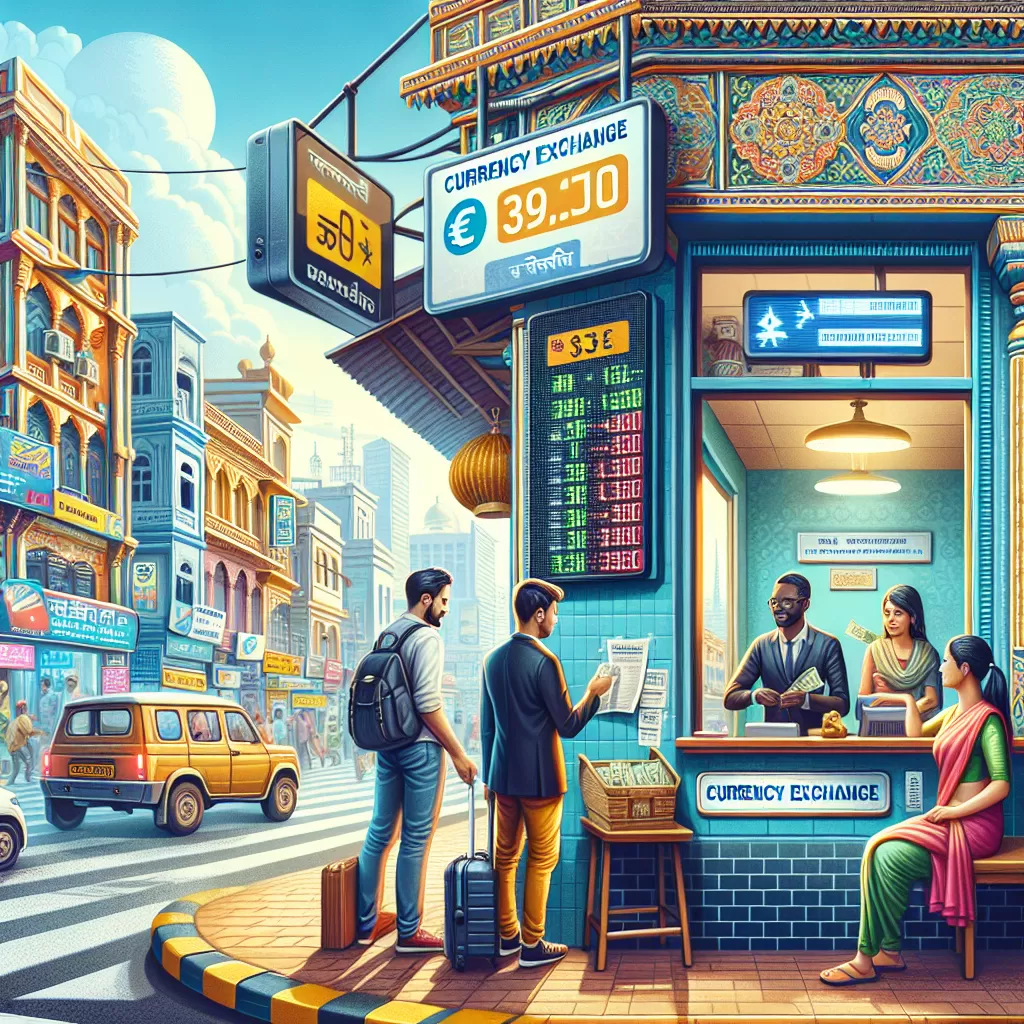Where To Exchange Currency In India
Follow Currency Mart April 10, 2024
Where to purchase Foreign Currencies?

Introduction
In the sprawling landscape of India, a land full of opportunities, exchanging currency is an essential task, whether for the global traveller or the savvy businessman. Here, the dance of numbers is a spectacle to behold. From banks and automated teller machines (ATMs) to online platforms and foreign exchange bureaus, each has its own secrets, advantages, and disadvantages. Let's adorn the robes of the Guardian of Currency Exchange and unravel the various options for currency exchange in India.1. Indian Banks
Arguably, banks are often considered the safest places for currency exchange in India, given their established reputation and security measures. They are guarded by stringent regulations of the Reserve Bank of India (RBI). Many Indian banks, such as State Bank of India (SBI), ICICI, and HDFC, provide forex services at competitive rates. Despite the reliable service, banks may not always offer the best exchange rates, and they usually charge a service fee. It is vital to compare rates before settling down with a specific bank.2. Online Forex Platforms
With the digital revolution taking the world by storm, online forex platforms have gained popularity in India for currency exchange. Websites such as BookMyForex, ExTravelMoney, and Thomas Cook offer secure and hassle-free services to exchange currency right at your fingertips. Advantages include competitive rates, convenience, varied payment options, and even doorstep delivery in various cities across India. Transparency in rates is a significant perk of online forex platforms; customers can compare prices before making transactions.3. Authorized Money Changers
Authorized money changers regulated by the RBI are another safe and popular option for currency exchange in India. They offer competitive rates and are often found in shopping malls, airports, and tourist hubs. Their advantage comes with their widespread presence and operational hours that extend beyond traditional banking hours. Although they offer convenience, charges and exchange rates at these establishments can vary, so do your research beforehand.4. ATMs
The ATMs of specific banks in India allow international tourists to withdraw rupees directly, using their domestic debit or credit cards. This option provides convenience, as ATMs are ubiquitous in urban and semi-urban areas in India. However, bear in mind that fees for these transactions can be relatively high, and exchange rates may not be as competitive as other options.5. Foreign Exchange Brokers
Foreign exchange brokers are another avenue to consider for currency exchange in India. These professionals mediate deals between buyers and sellers in this market, and their relationships with banks often allow them to offer better rates. However, it's essential to ensure that these brokers are authorized by the RBI to avoid potential scams.Conclusion
Whether you decide to exchange your currency at the bank, through an online platform, or a local money changer, it's essential to stay knowledgeable about the changing exchange rates. Remember, the dance of numbers is a spectacle of its own, but the key to the best deal lies in diligent research and comparison. Choose wisely, let the rhythm of the exchange lead your steps, and keep the bead of your currency safe under the watchful eyes of the Guardian of Currency Exchange.
Where to purchase Foreign Currencies?